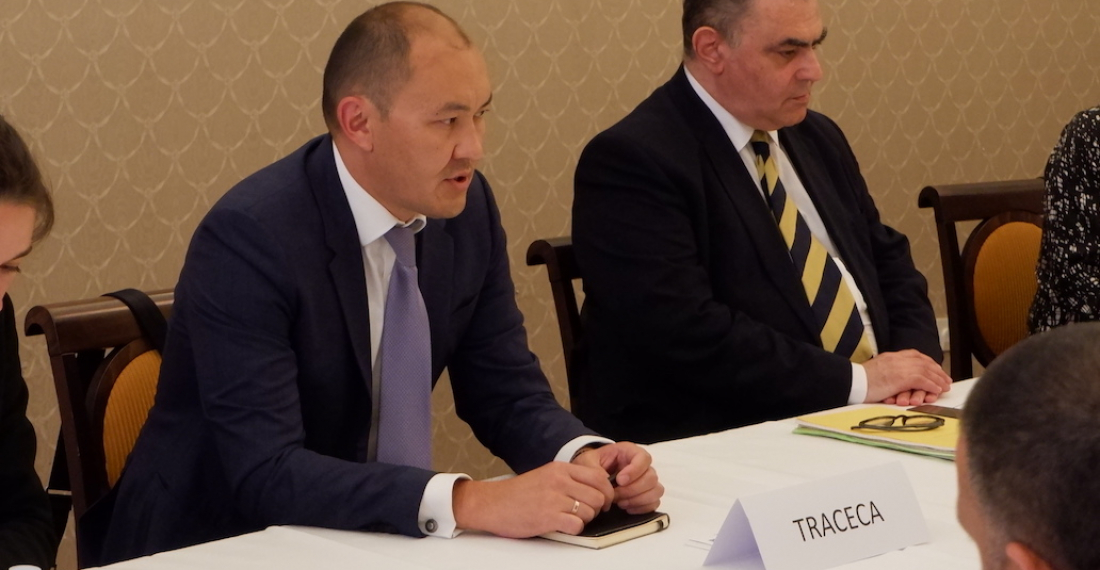TRACECA seeks a closer co-operation with the European Union as it pursues its plans and activities to promote connectivity Europe-Caucasus-Asia in areas related to transport. This was stated by the Secretary-General of the TRACECA Inter-Governmental Commission, Asset Assavbayev, who this week was on a visit to Brussels for discussions with EU officials. TRACECA brings together thirteen countries that form a transport corridor stretching from the heart of Europe to the borders of China.
Assavbayev was speaking at a policy briefing organised by LINKS Europe on Tuesday (29 June) which was attended by Ambassadors and other senior diplomats from the EU and TRACECA countries, as well as EU officials.
Assavbayev said that joint efforts by TRACECA and the EU were needed in the areas of harmonisation, containerisation and digitalisation in order to make the Europe-Caucasus-Asia corridor a success. The Secretary-General said that both sides should agree to conduct a joint study to assess the potential and possibilities of the corridor in the light of changing circumstances. Co-operation was also necessary to identify areas of collaboration as the European Union pursues its own initiatives along the corridor, including through its Eastern Partnership and its strategy on Central Asia.
Asset Assavbayev reminded that the EU and TRACECA had a long history of joint work dating back from 1993. In the period up to 2016 the EU had funded 85 projects along the transport corridor, including 14 investment projects and 71 technical assistance projects.
Currently the members of TRACECA are Armenia, Azerbaijan, Bulgaria, Georgia, Iran, Kazakhstan, Kyrgyzstan, Moldova, Romania, Tajikistan, Turkey, Ukraine and Uzbekistan. The chairmanship of TRACECA rotates annually between the member states. Azerbaijan currently holds the chairmanship of the organisation, and Bulgaria will take over in October 2021.






